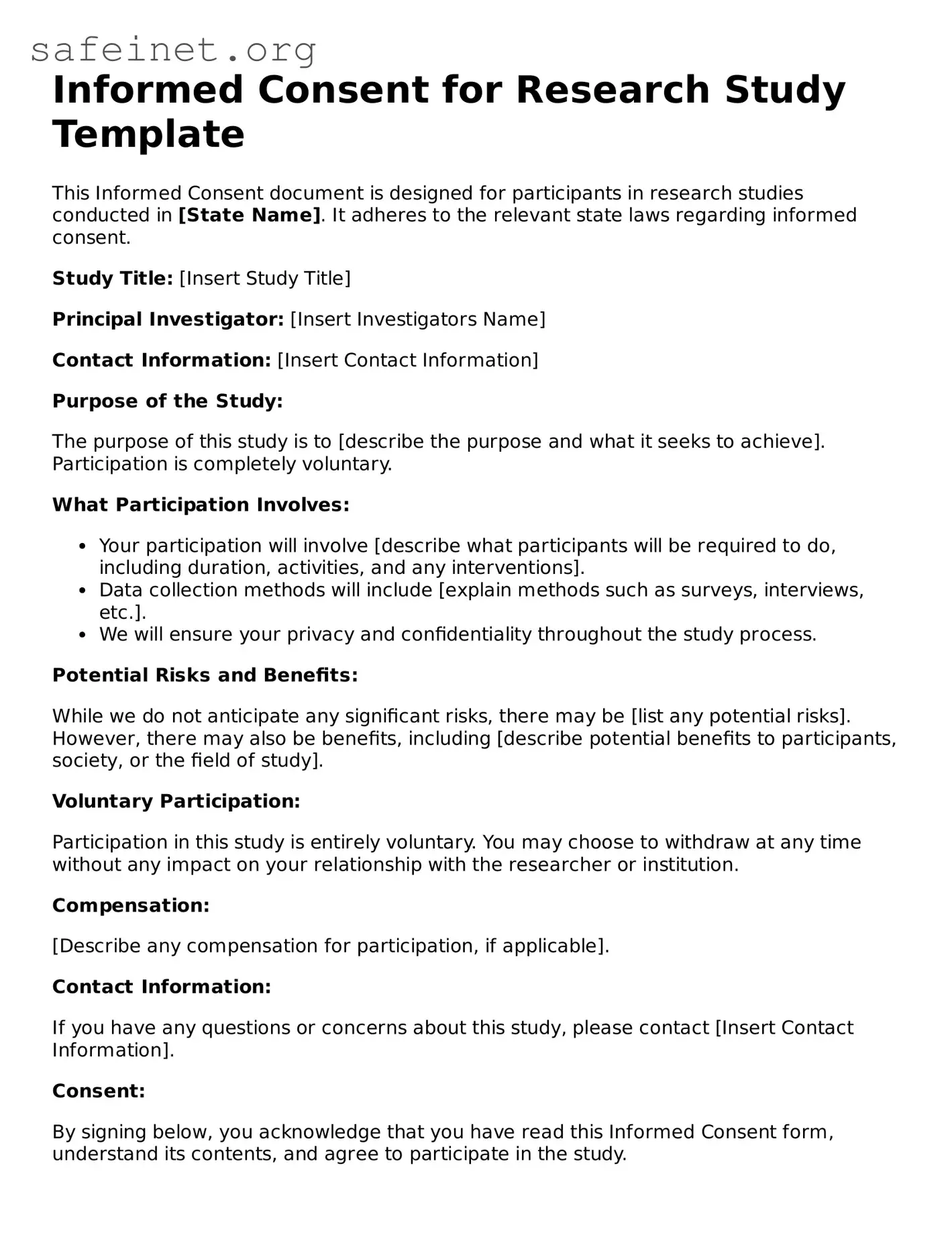What is the purpose of the Informed Consent for Research Study form?
The Informed Consent for Research Study form ensures that participants understand the nature of the study, their role, and any potential risks involved. It serves to protect the rights and well-being of participants while fostering transparent communication between researchers and individuals.
Who needs to sign the Informed Consent form?
All participants involved in the research study must sign the Informed Consent form. This includes individuals who are directly participating as well as those who may provide data indirectly. Minors or individuals unable to consent for themselves may require a parent or guardian's signature.
What information is included in the Informed Consent form?
The Informed Consent form typically includes details about the study's purpose, procedures, duration, potential risks and benefits, confidentiality measures, and the participant’s right to withdraw without penalty. This comprehensive information allows participants to make informed decisions regarding their involvement.
Can I withdraw my consent after signing the form?
Yes, participants have the right to withdraw their consent at any time during the study. Withdrawal can happen without any negative consequences or impact on the participant's relationship with the researcher or institution. It is a fundamental principle of ethical research.
What are the potential risks involved in participating in this research study?
Potential risks may vary depending on the study, but they will be explicitly stated in the Informed Consent form. Examples of risks may include physical discomfort, emotional distress, or privacy concerns. Assessing these risks helps participants make informed choices.
Will my personal information be kept confidential?
Yes, confidentiality measures will be outlined in the Informed Consent form. Personal information collected during the study will be protected and used exclusively for research purposes. Measures such as anonymizing data or aggregating findings are typically utilized to safeguard participants’ identities.
What if I have more questions after reading the Informed Consent form?
If you have any questions or concerns after reviewing the Informed Consent form, reach out to the study coordinator or researcher. They are responsible for providing clarification and addressing any queries to ensure that participants feel confident regarding their involvement.
Are there any benefits for participating in the research study?
Benefits may include contributing to scientific knowledge, receiving access to new information or treatments, or monetary compensation. The specific benefits associated with the study will be described in the Informed Consent form, helping participants weigh their decision.
What happens if I don’t sign the Informed Consent form?
If you choose not to sign the Informed Consent form, you will not be able to participate in the research study. Signing the form is a necessary condition for enrollment, as it ensures that participants are fully aware of the study's nature and requirements.
